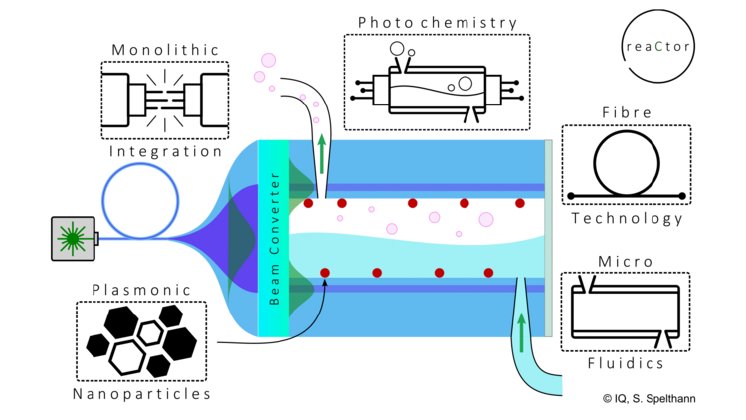The European continent shall become the first climate-neutral continent by 2050. The chemical industry is a major contributor to CO2 emissions, as it accounts for 30% of the global industry’s energy use. This is where the Pathfinder project reaCtor (Fibre-based plasmonic microreactor for flow chemistry) will come into play.
“We will contribute to the ambitious goal of a sustainable chemistry by developing and validating a novel type of light-driven chemical reactor with enormous scale-up potential for industrial applications.”, says Dr. Michael Steinke from the Laser Components and Fibres group, who coordinates the project.
“We will combine optical fibres for smart light management, metallic nanoparticles as efficient energy transmitters, nano- and micro-fabrication for micro-fluidic functionalization and monolithic optical integration, and flow chemistry to obtain an eco-friendly and safe chemical technology.”
reaCtor’s consortium consists of top experts from across Europe and reflects the interdisciplinarity and innovative power of the approach:
- AMOLF and University Amsterdam, Netherlands
- University La Laguna, Spain
- Łukasiewicz Institute of Microelectronics and Photonics, Poland
- EURA AG and Leibniz University Hannover, Germany

